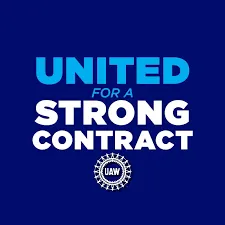Strikes work

People across the world know that it’s better in a union. Not only for union members but also for nonunion workers.
Unions do more than fight for wages and benefits. They fight to improve the rights of all people.
Union members helped create workplace health and safety standards, pass the Americans with Disabilities Act and the Family and Medical Leave Act, increase the minimum wage, negotiate workers’ compensation benefits, and advocate for many other laws that make our society stronger and safer.
When unions win salary increases for members, the wages of all workers—whether we’re in a union or not—rise too. Strikes are one of the most effective ways to win those benefits.
That’s why more workers going on strike is good news for all workers.
Writers, actors, car manufacturers, teachers and health care workers (just to name a few) have gone on strike—and these strikes are paying off.
Here are just a few examples of recent gains workers have won after going out on strike:
- More than 75,000 Kaiser Permanente workers won huge concessions after going on strike earlier this month. Workers are now voting on a 21% raise over four years, a minimum wage of $25 in California and $23 in other states.
- After the Writers Guild of America members went on strike, they won better streaming residuals and transparency regarding numbers, plus limits on the use of artificial intelligence to write scripts—a huge win.
- This past week, Air Wisconsin pilots, members of the Air Line Pilots Association (ALPA), won a contract that includes an average 54% pay increase for first officers and a 38% increase for captains over the life of the contract.
Learn more about the union difference. Or check out the AFL-CIO strike map to find a strike fund to support striking workers.
In Solidarity,
Team AFL-CIO
P.S. Do you want to join a union or organize one with your colleagues? We recorded our training, “It’s Better in a Union, How to Organize Your Workplace” so you can watch it on demand.